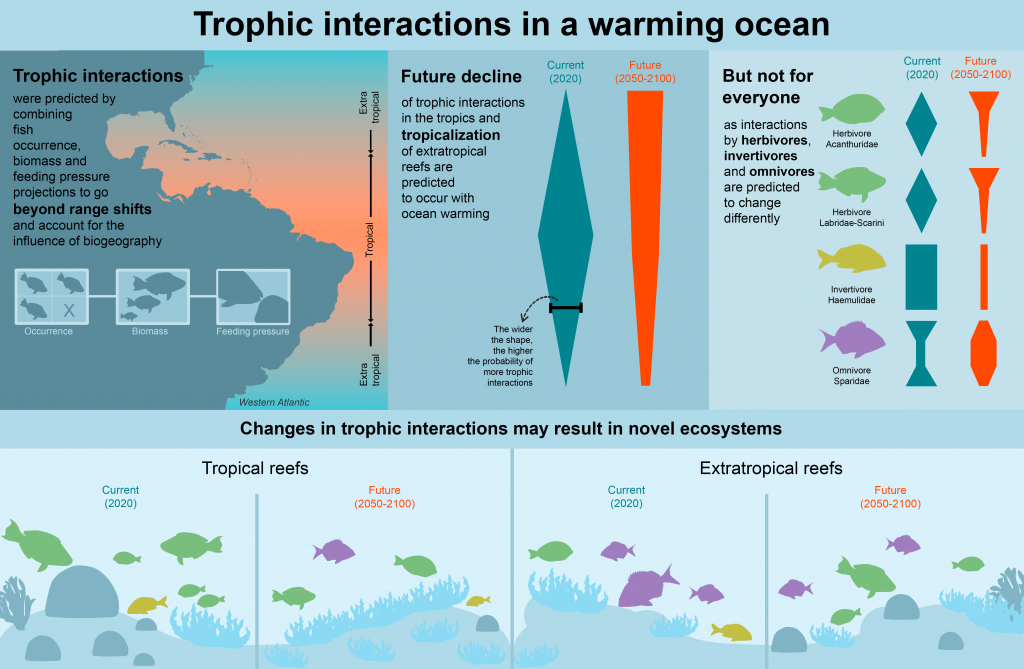Interactions between species are likely to change geographically due to climate‐driven species range shifts and in intensity due to physiological responses to increasing temperatures. Marine ectotherms experience temperatures closer to their upper thermal limits due to the paucity of temporary thermal refugia compared to those available to terrestrial organisms. Thermal limits of marine ectotherms also vary among species and trophic levels, making their trophic interactions more prone to changes as oceans warm. This paper considers how temperature affects the trophic interactions of reef fish in the Western Atlantic and looks at model projections of changes in fish occurrence, biomass and feeding intensity across latitudes as a result of climate change. With ocean warming, tropical reefs will experience diminished trophic interactions, particularly herbivory and invertivory, potentially reinforcing algal dominance in this region. Tropicalization events are more likely to occur in the northern hemisphere, where feeding by tropical herbivores is predicted to expand from the northern Caribbean to extratropical reefs. Conversely, feeding by omnivores is predicted to decrease in this area with minor increases in the Caribbean and southern Brazil. Feeding by invertivores declines across all latitudes in future predictions, jeopardizing a critical trophic link. Most changes are predicted to occur by 2050 and can significantly affect ecosystem functioning, causing dominance shifts and the rise of novel ecosystems.
